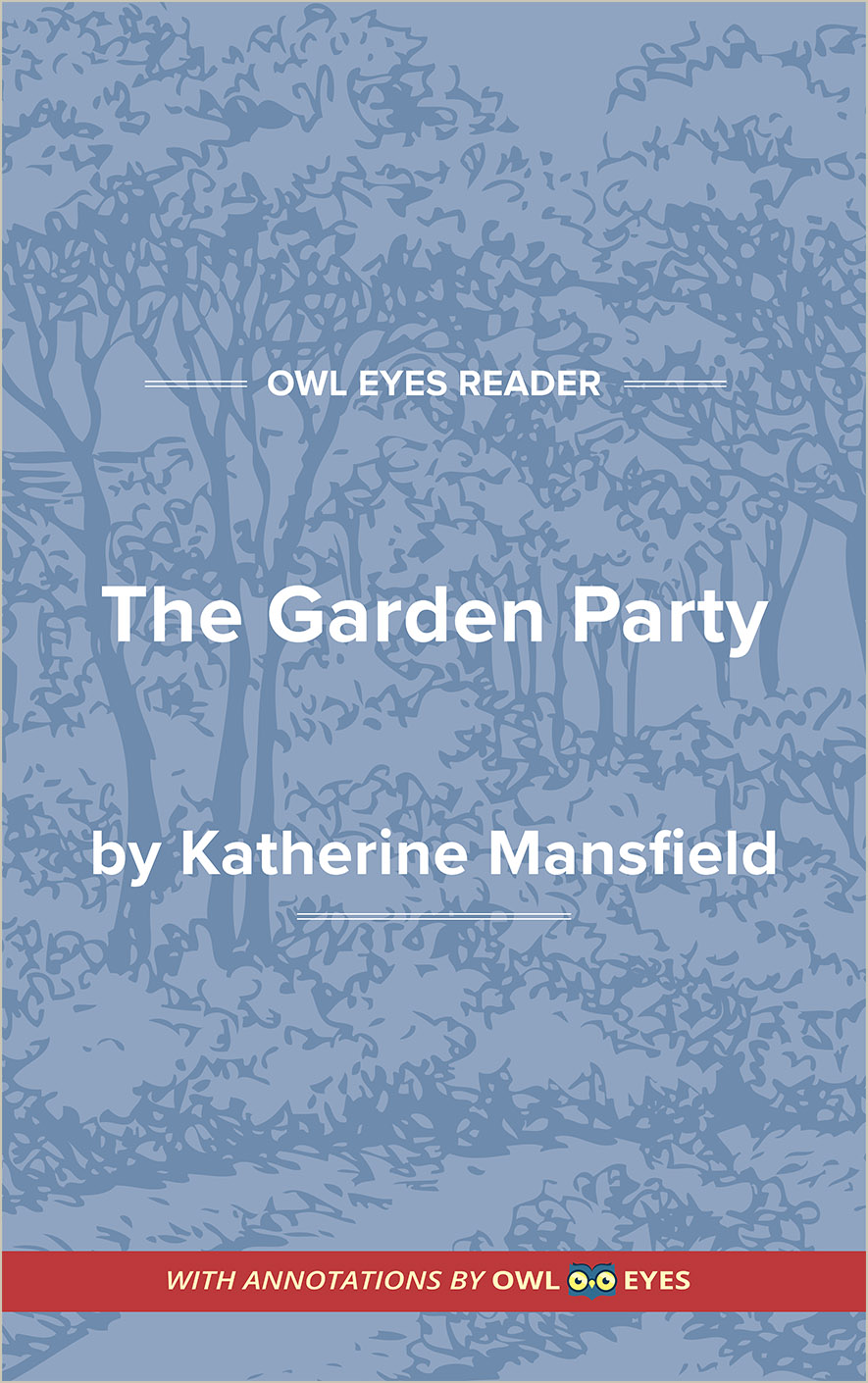Study Guide
Analysis Pages
Summary
Katherine Mansfield revolutionized the short story genre by ending the predominant reliance upon traditional plot structure, instead relying more on a specific moment in time, expressed through image patterns. By doing this, Mansfield carried the short story genre away from formalistic structuring and helped to establish its credibility as a literary form.
This collection of short fiction contains the following stories: “At the Bay,” “The Garden Party,” “The Daughters of the Late Colonel,” “Mr. and Mrs. Dove,” “The Young Girl,” “Life of Ma Parker,” “Marriage à la Mode,” “The Voyage,” “Miss Brill,” “Her First Ball,” “The Singing Lesson,” “The Stranger,” “Bank Holiday,” “An Ideal Family,” and “The Lady’s Maid.”
The Garden Party centers on female protagonists and the roles they play in family and social structures. These female characters differ in both age and class, ranging between the ages of six and sixty-five years and belonging to lower-, middle-, and upper-class social groups. For example, in “The Garden Party,” the collection’s title story, the female protagonist is approximately sixteen and is a member of aristocratic society, whereas in “Life of Ma Parker,” the title character, a maid, belongs to the lower class and is perhaps fifty.
Not only does Mansfield like to juxtapose differences in class and in age, but she also likes to position fictional elements against one another. Characters, settings, and themes are juxtaposed in her short fiction. In “The Garden Party” two classes are juxtaposed: On one hand there is the affluent and aristocratic Sheridan family celebrating the new flowers in bloom, and on the other hand there is the poor family, less than two miles away from the Sheridan estate, that has just suffered the father’s untimely death.
A feminist, Mansfield juxtaposes the roles of men and women in “At the Bay.” She uses the character of Linda to address the idea that women need more than a husband and children to fulfill their lives. The story’s narrative depicts Linda’s growing realization that there is more to life than wifely and motherly duties. Increasingly evident within the story is her desire to take an active role in her own life.
Mansfield is a master of utilizing and implementing many literary techniques. A striking use of metaphor is apparent in Mansfield’s short fiction. Her stories also tend to operate by means of the implied rather than the direct. Furthermore, she uses a voice that is influenced by the characters, experiments with point of view, employs the use of natural elements, and begins stories in medias res.
Mansfield uses voice to present a character accurately. If a character is a young woman or an adolescent, for example, voice conveys the character’s young or adolescent feelings. If the narrator speaks from the consciousness of a young child, the words are short, to the point, and not complicated, like the language and speech patterns of an actual child. Thus does narrative voice help to give the reader a realistic impression of the character.
Mansfield also experiments with point of view. She uses first and third person viewpoints, standard to short fiction, yet she has also created a point of view peculiarly her own that seemingly derives from her gift of impersonation. Her early mimicking of family and acquaintances carries over in her fiction to her use of a multipersonal perspective. Writing from a multipersonal point of view also allows Mansfield to give readers an extended sense of time, in both a historical and an immediate sense. This point of view also allows Mansfield to extend the viewpoint of a story from that of a single character to that of an entire group. In “The Garden Party,” the beginning viewpoint is that of Laura Sheridan; however, at the end of the story, the viewpoint has shifted to be inclusive of the entire family.
The use of natural elements is an essential...
(The entire page is 1,602 words.)
Owl Eyes subscribers get unlimited access to our expert annotations, analyses, and study guides on your favorite texts. Master the classics for less than $5/month!

